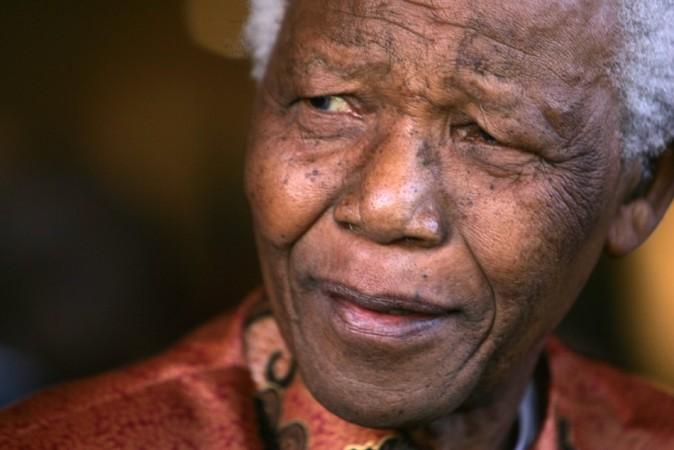
American President Barack Obama visited South Africa on Friday, a trip that will draw every person's attention to what will happen when the two leaders that made history will meet, even when there are good chances that Obama's "hero", Nelson Mandela, might bid adieu from a grieving world and who survived with a renewed hope of solidarity ever since he became South African's first black president.
When Obama stood with deep reverie on the "door of no return" on Senegal's Goree Island looking deeply into the Atlantic Ocean, where African "slaves" were once upon a time led into ships bound for America, it served as a symbolism which allowed him to "fully appreciate the magnitude of the slave trade" which had ruled history for centuries.
And here is a thought-stricken president bound for South Africa Friday where one of the most admired leaders ever, lays ailing for weeks. Obama knows only too well that this could probably be the last time he will see his "hero" who will turn 95 next month. And when he does go to see him, the iconic moment will serve as a deeply subtle symbolism where an inspiration of equality meets the "history" who dared to dream of a unified world.
The meeting brings into light two leaders of different generations, but of similar roles: both were the first black presidents of two countries that are located continents apart but were deeply mired in racial divides since time immemorial. Both leaders have invoked hopes and admiration, while keeping some citizens wondering whether some of their leadership tactics were entirely worthy of approbation.
Mendela was once seen with spite when he called for the nationalisation of banks, gold mines, and land, believing that the measure was necessary to ensure equal distribution of wealth, although he never actually nationalised them. As though history has repeated itself, Obama, another icon for peace, is in present day sinking deeper into a quagmire of a controversy surrounding the notorious NSA surveillance program that is perceived to be against American freedom.
But as the inspiration from Mandela has only taught him too well, Obama will remain resolute to fight during the time of adversity. Mandela has always been an inspiration for Obama who on Thursday reiterated how the revolution sparked by the anti-apartheid hero has been a model for his own fight and activism. And for the intrinsic history, at least in race and ideology that the two leaders share, backed by this fateful moment where they meet, builds a ground for people to see them in comparison.
But Obama has always found solace in humbling down to the effect of considering what a New York Times article calls it "presumptuous to compare his own life to that of Mr. Mandela". The latter had endured an imprisonment of 27 years where he was holed up inside a tiny cell on Robben Island, before rising again from the slumber, marking an end to apartheid and becoming the first black South African president.
"All of us face days when it can seem like change is hard - days when our opposition and our own imperfections may tempt us to take an easier path that avoids our responsibilities to one another," Obama wrote in the foreword to Nelson Mandela's book "Conversations With Myself".
"But even when little sunlight shined into that Robben Island cell, he could see a better future - one worthy of sacrifice."
This is a time when people across the world are revisiting the days gone by that will live in memories for generations to come. Obama visits the leader who made it possible for slavery, inequality and human degradation to end. While he might be meeting his "hero" in life, it will probably pinch a little too hard for Obama to realise that the icon is in too critical a condition to even talk to.












